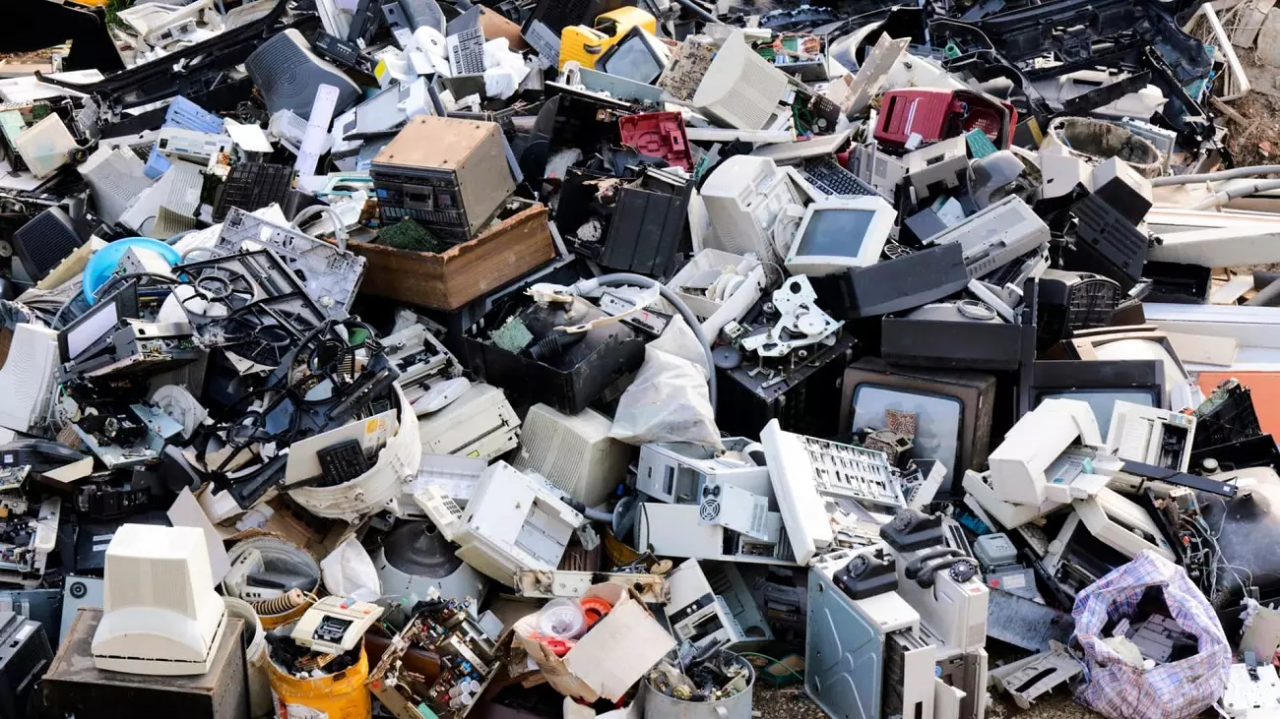Introduction:
Government agencies, just like all of us, use electronic items such as computers, batteries, UPS, fans, tubelights, LED bulbs and so on. These electronic goods break-down after a while. When they are broken down, they have to disposed of, as it occupies valuable real estate space. The electricity board for example, generates tonnes of e-Waste, due to replacement of outdated electrical equipment with new equipment. This waste need not always be a burden because when it is processed correctly, it can generate valuable materials that can be reused. Such re-usage is environmentally friendly. Government agencies regularly dispose of e-waste accumulated in their offices. This article analyzes the e Waste tenders published by the government agencies in India during the last year.
Annual evaluation of e-waste tenders:
A total of 1075 e-Waste tenders were published by government agencies in India during the last year. About 1/4th of the tenders amounting to 234, were published in the State of Tamilnadu. The Delhi and Kerala stood second with 107 and 91 tenders respectively. The Tamilnadu State road transport corporation advertised the most number of e-Waste tenders at 74. The Indian army and the department of employment and training published 58 tenders each. The Kerala Electricity Board advertised 49 e-Waste tenders. From the initial analysis, it is clear that the electricity board and road transport corporation are key advertisers of e-Waste tenders.
Electricity Scrap Tenders: Out of 1075 tenders, 60 tenders were advertised by the electricity agencies. A variety of electrical scrap tenders were advertised such as unserviceable batteries, electricity poles and mild steel cast iron. For example, The Kerala State Electricity Board (KSEB) published a tender for disposal of damaged and unserviceable Tubular poles available at various location of Electrical sections under Electrical Divieion Kodungallore. Another tender was published by KSEB for the disposal of unserviceable batteries available at various Substations under Transmission Circle,Thiruvananthapuram. In a few cases, the government agencies have sought to exchange their existing e-Waste for a newer version of the product. For example, the West Bengal State Electricity Distribution published a proposal for procurement of 64 numbers 12 Volts, 65 AH VRLA Batteries Bank and dismantling and buy-back of sixty two (62) numbers 12 Volt, 65 AH old existing batteries. A similar buy back tender was advertised by the Gujarat State Electricity Corporation Limited: Supply of 1930AH Battery cells for DCDB Battery bank along with Buy-Back of Old cells.
Computer Scrap Disposal: Many different types of computer scrap tenders were advertised. The Chennai Port Trust for example sought to dispose 11 numbers of its old copier machine with the SITC of 11 Nos. Digital Technology Multi-Functional Plain Paper Copiers. In this way, the responsibility of disposing the machine rests with the bidder which supplies the new paper copiers. A similar buy back tender was advertised by the Jaipur Metro Rail Corporation Limited: Supply and Installation of Photocopier cum Printer Machine with Buy Back of Old Photocopy Machines. About 60 plus tenders were advertised for disposal of computer scrap. The Accountant General Punjab published a notice inviting tender for condemnation of computer hardware. Many different types of computer equipment were disposed by the National Informatics Centre in a tender advertised in July 2023: Disposal of obsolete Desktop Computers and High end Servers and Network Attached Storage. This tender was published by the Puducherry Unit of the NIC. The accurate auctioneers agency sought to e-Auction E-waste items including Laptops, Computers, Monitors, IT Equipment’s and Phones. The High court in Allahabad also advertised an auction for disposing Old Unused/Outdated Computer Hardware.
e-Auctioning e-Waste Tenders: About 185 published advertisements were e-Auction tenders. In these tenders, the bidders can improve their bid offering in real time by looking at the prices quoted by the competition. Given that about 20% of the e-Waste disposal is done through auction, it can be concluded that e-Auction methodology is predominantly used for disposal of e-Waste. The Saharanpur Municipal Corporation Saharanpur UP for instance sought to auction old Iron, Plastic and Electric Battery. The KSEB used e-Auction to dispose electricity related materials. Similarly, the Council of Scientific and Industrial Research sought to retender Old and Unserviceable E-waste items in CSIR-CDC Office at India Habitat Centre, New Delhi.
The contract value of e-waste tenders: The estimate value of the e-Auction of e-Tender was published in about 20% of the advertised opportunities. An analysis of this value shows that about majority of the scrap tenders fell in the 5 – 10 Lakh bracket. However, a few high value tenders were published. These tenders were typically buy back tenders, where the bidder is required to provide new item by replacing the old unserviceable scrap items. A tender by MD-UJVN was published with an estimate value of 1.76 Crores. This tender involved Supply, Installation, Testing Commissioning of 220 VDC, 1395 AH, Battery Bank Including Buy back of old Batteries.
Live tender analysis: A total of 13 e-Waste tenders were live as of 12th March 2024. Of this, Tamilnadu published the most number of tenders at 5. Delhi and Rajasthan were ranked next at 2 tenders each. One tender was published in each of the remaining 4 States: Odisha, Assam, Punjab and Karnataka.
Conclusion: This tender analysis shows that a large number of opportunities are advertised by the government agencies for disposal of e-Waste or electronic waste. These tenders are published across all the States in India. The 1075 tenders were published by a 354 government agencies. Thus, there is a wide spread recognition for disposing e-Waste. Many different types of e-Waste are disposed by the government such as electricity poles, computer hardware, battery and sub-station items. These tenders are typically in the 5-10 lakh range. However, the old unusable items are traded off for new items, the value of the tenders increased to even crores of rupees. Thus, from this analysis, it can be concluded that government agencies take e-Waste disposal seriously. The agencies involved in handling e-Waste are advised to monitor these opportunities and participate in them.

